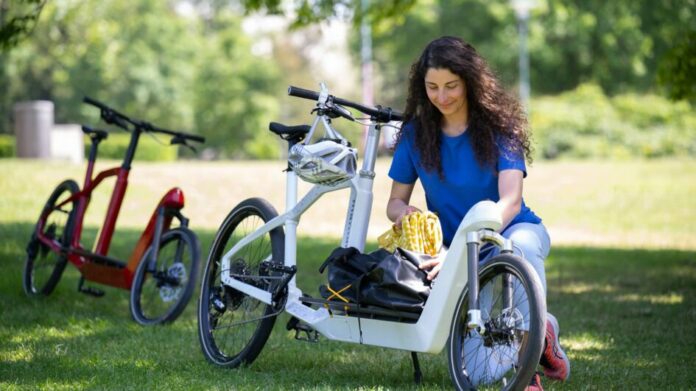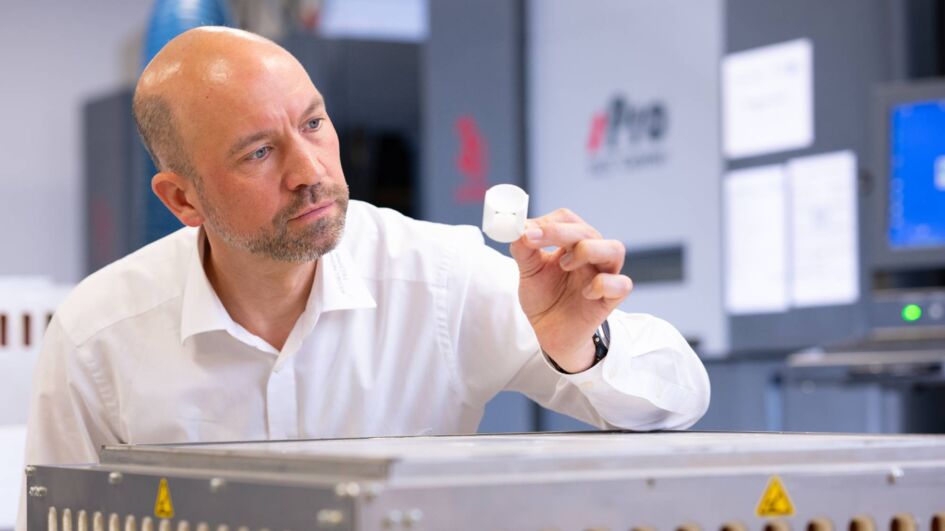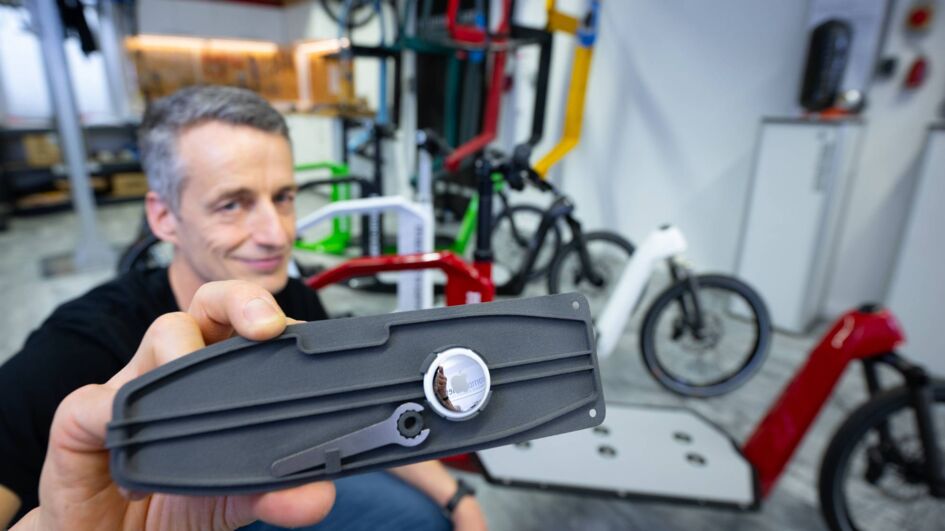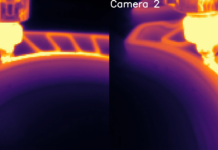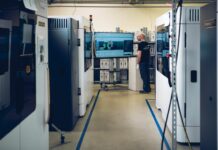The more people are making environmentally conscious choices for their mobility, the more one realizes that cargo bikes become trending. Designed and constructed specifically for transporting loads, these vehicles can help their owner carry a wide range of things such as child, a dog or a crate of water.
According to specialty chemicals company Evonik, trends from the last three years continue to show upward growth in this direction. In Europe especially, cargo bike sales grew by an average of 40 percent between 2019 and 2021. Looking ahead, several market studies predict annual market growth for cargo bikes of more than 22 percent through 2030.
To make this a reality, manufacturers would have to improve the manufacturing process of these vehicles that remain quite heavy. Reducing their weight can be done through the use of composite materials. That’s anyway what the team of custom bicycle designers and tinkerers at Maniac & Sane demonstrated through the use of 3D-printed components made of INFINAM® PA12 from Evonik.
“The latest cargo bikes incorporate a lot of technology. This requires new designs for certain functional parts: Passenger compartments are becoming more padded out, and 6-point safety belts are soon to be become a standard feature. With all these extras, cargo bikes are becoming real heavyweights on narrow inner-city bike paths,” says Martin Fleischhauer, founder of Maniac & Sane and engineer by training.
Key specifications of the manufacturing process
Design freedom being one of the main attributes of additive manufacturing, the team at Maniac & Sane found 3D printing the ideal solution for integrating certain functions into their custom-designed cargo bike. Together with experts from Kegelmann Technik GmbH, a leader in the generative manufacturing of models, prototypes, tools and end products, the two companies created a lamp housing and an AirTag mount that featured as integral components of the cargo-bike’s frame structure, a press communication reads.
“The challenge was to find the right technology and material for Maniac & Sane’s cargo bike components. Considering the requirements: lightweight, functional components that were break-resistant and weather-resistant – and all that in a filigree design, the obvious choice was powder-based 3D printing and the INFINAM® PA12 material from Evonik,” says Markus Albrecht, Additive Manufacturing Division Manager at Kegelmann Technik GmbH.
Remember, last year Evonik introduced a new grade of INFINAM® PA12 powders with significantly reduced CO2 emissions. The powders are produced using renewable energies at the Marl Chemical Park in Germany and can be processed by SLS 3D printing.
“We are only at the beginning,” says Fleischhauer. “We want to connect our designs with the emotions and passions of our customers so we can offer them a truly personal experience with our products. Among other things, this philosophy continues to result in new features such as illuminated logos, which we are currently adding to our design concept. The versatility of 3D printing and Evonik’s INFINAM® PA12 create new ways for designers to approach and implement things – and, ultimately, respond to customers’ individual wishes.”
Remember, you can post free of charge job opportunities in the AM Industry on 3D ADEPT Media or look for a job via our job board. Make sure to follow us on our social networks and subscribe to our weekly newsletter : Facebook, Twitter, LinkedIn & Instagram ! If you want to be featured in the next issue of our digital magazine or if you hear a story that needs to be heard, make sure to send it to contact@3dadept.com



